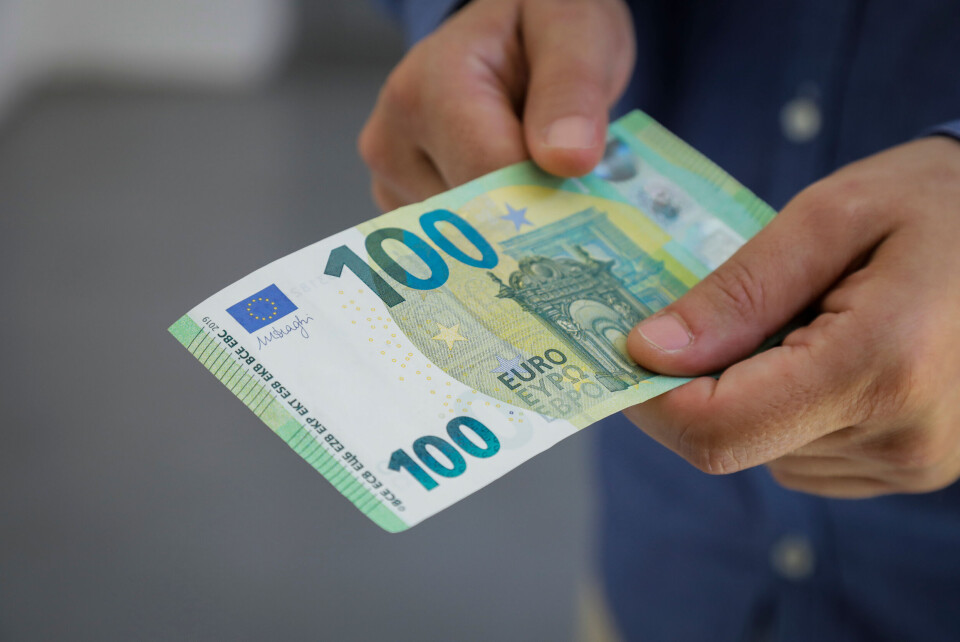-
Good news on cost of living in France as inflation set to fall in 2025
Projected figures suggest that the rate will drop and stabilise
-
How much do people in France spend on Christmas on average?
The Christmas meal and gifts are the largest expenses, with almost 50% worried about cost
-
Confirmed: France’s minimum wage will increase in November
A 2% rise will see the wage rise above €1,800 per month for the first time
Inflation aid, energy cheque: who is due these extra French benefits?
A one-off €100 plus payment aimed at helping almost 11 million households cope with inflation is being sent out today

Nearly 11 million low-income households in France are set to receive a one-off prime exceptionnelle de rentrée scolaire payment today (September 15) to help them manage the rising cost of living.
Read more: Date confirmed for payment of France’s new €100 cash aid boost
This payment will be sent to households who receive the revenu de solidarité active (RSA), the allocation adulte handicapé, the allocation spécifique de solidarité and the allocation de solidarité aux personnes âgées. Bursary students also qualify.
This equates to 10.8 million households in France.
Solidarity Minister Jean-Christophe Combe said that it represents a “show of solidarity and social justice for families and those who are severely impacted by inflation,” and that it is being distributed at a “key moment: the return to school after the summer”.
The prime exceptionnelle de rentrée scolaire is not the same as the allocation de rentrée scolaire, which is a means-tested payment sent out each year to help families with the cost of school supplies.
Its total varies depending on the family’s income and the number and age of their school-age children.
How much will people receive today?
The prime exceptionnelle de rentrée scolaire will include a €100 baseline payment, along with an additional €50 for each dependent child.
Households which do not receive the benefits outlined above but which get the prime d’activité should be paid €28, with an additional €14 for each child in the household in November.
This will come in addition to the 4% rise in the prime d’activité payment passed by Parliament in July.
What do I need to do?
Those who are eligible for this exceptional payment do not need to do anything to receive it as it will be distributed automatically by the public bodies in charge of managing their benefit payments.
For example, if you receive the RSA, you will get your prime from your Caisse d’allocations familiales.
An exceptional energy cheque for 12 million households
France’s Prime Minister Élisabeth Borne also announced yesterday that the government would be extending its chèque énergie energy bill support to include 12 million lower-income households.
Read more: Regulated French gas and electric bills capped at 15% rise in 2023
This is because, after freezing regulated gas prices and capping regulated electricity bills at a 4% rise this year, the government will allow these tariffs to rise by 15% in 2023.
Without government intervention, bills would increase by over 100% as a result of market tensions caused by the war in Ukraine, but Ms Borne acknowledged that a 15% rise “is not insignificant”.
Therefore, an energy cheque will be sent out to “the 40% of households on the lowest incomes,” costing the state €1.8billion, according to estimates.
The amount paid will range between €100 and €200, the higher figure being reserved for the 20% of households on the lowest incomes.
Ms Borne gave the example of a single parent with two children earning minimum wage, who will receive €200, while a couple earning €3,000 between them each month and supporting three children would get €100.
The prime minister did not give precise details on when this payment will be made or how it will be sent out, but said that it will be before the end of the year.
Related articles
French banks to limit fee increases to 2% in 2023 amid high inflation
French PM urges big business to return purchasing power to the public
What food products have risen most in price in France?
























